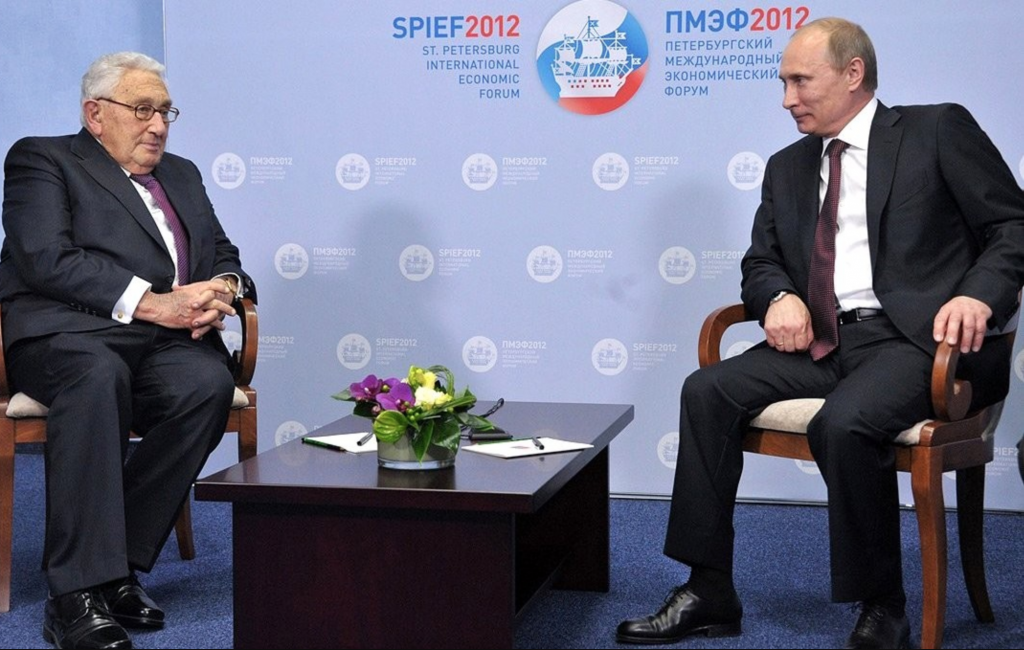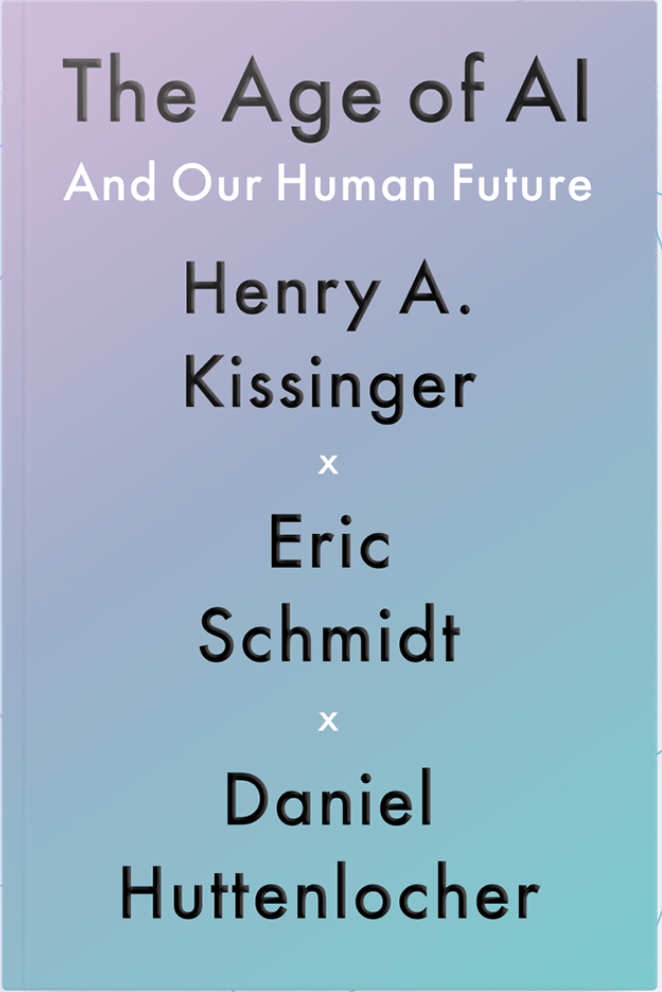
Henry Kissinger meets with Russian President Vladimir Putin at a conference in 2014. The former Secretary of State shares his thoughts on the influence of AI in world politics in the new book with two co-authors. (Source: Wikimedia Commons)
Three Great Minds Co-Author Book on AI’s Growing Impact on the World
Dr. Henry Kissinger is perhaps not the first name that comes to mind when you think about AI. However, the former Secretary of State has some interesting comments about AI on a site called broadbankbreakfast.com. Kissinger spoke at a Council on Foreign Relations event highlighting his new book “The Age of AI: And Our Human Future” on Monday along with co-author and former Google CEO Eric Schmidt in a conversation moderated by PBS NewsHour anchor Judy Woodruff.
Kissinger co-authored the book with Daniel Huttenlocher who is the inaugural dean of the MIT Schwarzman College of Computing, and Google’s Schmidt. Schmidt also answered questions from the audience regarding the lack of understanding of a technology that is already in heavy use in today’s world: AI
 With all the consideration on how to make AI work so it is effective but also utilitarian, Kissinger noted how much human thinking must go into managing the “thinking” these machines do, and that “a mere technological edge is not in itself decisive” in terms of AI that can compete with adversaries such as China’s diplomatic technological might.
With all the consideration on how to make AI work so it is effective but also utilitarian, Kissinger noted how much human thinking must go into managing the “thinking” these machines do, and that “a mere technological edge is not in itself decisive” in terms of AI that can compete with adversaries such as China’s diplomatic technological might.
Schmidt also brought up the point that even though AI can or will solve huge technical or cosmological problems for us, humans may not understand how AI was able to do that. And most leading AI people will tell you that would put the human race at a severe disadvantage on so many levels.
Both Kissinger and Schmidt point out the obvious, which is AI can not solve all of our human problems. Many of them, but certainly not all.
Kissinger says that further use of AI will call into question what it means to be human. And that in itself is enough to sit and ponder for quite a long time. Here’s a video about the book, featuring the three authors.
Getting three accomplished deep-thinkers together to explore what AI means for the world makes for an interesting read.
One Bad Review
Editorial Reviews
07/12/2021
Former secretary of state Kissinger (World Order), former Google CEO Schmidt (How Google Works), and MIT computer scientist Huttenlocher underwhelm in this stolid and unimaginative primer on artificial intelligence. “Every day, everywhere, A.I. is increasing in popularity,” they write and trace the philosophical and intellectual roots of artificial intelligence from its antecedents in Enlightenment thinking—intelligent machines, for example, call into question, “I think therefore I am”—and the postwar technological advances driven by Alan Turing and Frank Rosenblatt, who created a “neural network” for computers in 1958. While they raise thought-provoking questions about the implications of AI on geopolitics (notably as European nations debate whether to use the U.S. or Chinese platforms), their musings on the impact AI has and will have on humans’ daily lives feel cursory. The authors also rely on familiar examples of AI success stories—AlphaZero, a chess-playing machine, and halicin, an AI-generated antibiotic, come up time and time again. Despite the work’s brief moments of insight and the authors’ bona fides, there isn’t much to recommend this. Agent: Andrew Wylie, Wylie Agency. (Sept.)
Publishers Weekly
One Good Review
2021-10-13
Kissinger, Schmidt, and Huttenlocher weigh in on the robotic future.
When thinking of Kissinger in the context of futurology, one might conjure the image of Stanley Kubrick’s Dr. Strangelove; after all, it’s said that he served as the model for the character. Instead, think of the 1983 film War Games, in which young Matthew Broderick nearly touches off thermonuclear war with his computer tinkering. As that latter film showed, AI involves machines learning to think for themselves—and when they do so while lacking “preprogrammed moves, combinations, or strategies derived from human play,” the machines learn by their own rules. This can be good: One AI routine that the authors discuss figured out a new pharmaceutical formula that humans might never have discovered. But there’s a catch, potentially ominous: “The advent of AI obliges us to confront whether there is a form of logic that humans have not achieved or cannot achieve, exploring aspects of reality we have never known and may never directly know.” The book then spins off into an area Kissinger knows best: how AI might be put to work in the realm of national and international security, developing systems that may keep us all safe—or, alternately, that “will be so responsive that adversaries may attempt to attack before the systems are operational…
“Good reading for those seeking to navigate the alt-reality world after the singularity.”
Kirkus Reviews
read more at broadbandbreakfast.com







Leave A Comment